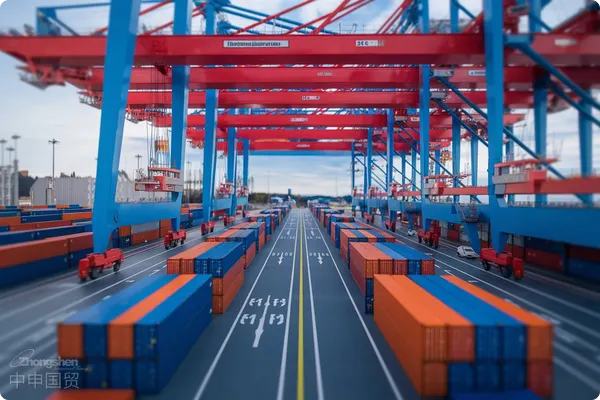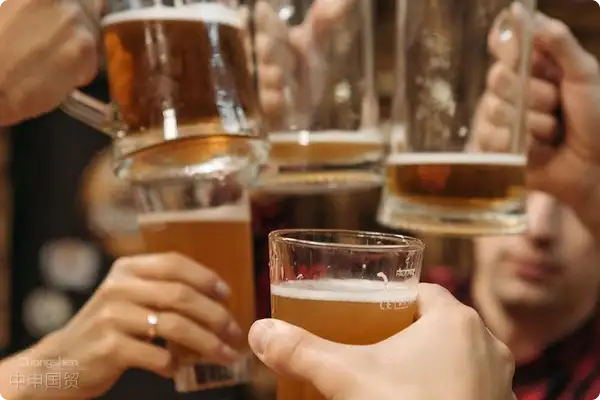- Shanghai Zhongshen International Trade Co., Ltd. - Two decades of trade agency expertise.
- Service Hotline: 139 1787 2118
Whenforeign tradeimporting, one might find the procedures in Vietnam and Thailand, two Southeast Asian countries, somewhat confusing, especially when it comes to feed additives. So, what permits or procedures are required for importing feed additives in Vietnam and Thailand? Today, Ill delve into this topic in detail, aiming to simplify this perplexing issue.

Vietnam: Requirements for Importing Feed Additives
To import feed additives into Vietnam,registration and filingare key steps. According to Vietnamese regulations, all feed additives must be registered and filed with the Ministry of Agriculture and Rural Development before import. This means importers must submit product information, composition, usage, and other documents for government review and approval before the products can enter the market.
Required filing materials generally include:
- Product composition description: A detailed description of the additives ingredients and formulation for evaluation by the Vietnamese Ministry of Agriculture.
- Product samples: Sometimes, small samples are required for testing to ensure compliance with Vietnams quality and safety standards.
- Manufacturer information: Including production licenses, quality certificates, etc., to confirm the manufacturers qualifications to produce the feed additive.
After completing these procedures, the Vietnamese Ministry of Agriculture will issue a filing permit, allowing legal import and market distribution. Vietnams process is relatively meticulous, and filing may take some time, so importers are advised to prepare documents and samples in advance to avoid delays.
Thailand: Requirements for Importing Feed Additives
In comparison,Thailands import procedures are also very rigorous. In Thailand, the key steps for importing feed additives include obtaining an import license and completing relevant registrations. The management of feed and agricultural products in Thailand falls under the Ministry of Agriculture and Cooperatives (MOAC).
Before importing feed additives into Thailand, importers need to:
- Import license: All feed additives must be approved by the Ministry of Agriculture and obtain an import license. This involves providing detailed product information, composition and function descriptions to ensure the products will not negatively impact Thailands livestock industry.
- Bonded warehouse operations(if applicable): If intending to use bonded warehouses for storing these products, necessary documentation must be prepared in advance. Current information indicates that when importing feed additives into Thailand, inspections may requireIt is recommended to verify through the following methods:Technical datato verify the products origin and confirm its quality meets import standards.
Differences between Vietnam and Thailand: What should be noted?
Among the import requirements of Vietnam and Thailand, the main differences lie inregistration and licensing procedures. Vietnam places more emphasis onproduct registration, where importers need to provide detailed product information to Vietnams Ministry of Agriculture, while Thailand focuses more onImport licenseobtaining licenses as well as bonded warehouse operations and inspection requirements.
Additionally, during the product import process, certificates of origin are particularly important in Thailand, especially when using bonded warehouses. Importers need to prepare certificates of origin to comply with the Ministry of Agricultures inspections and regulations, which is a notable difference compared to Vietnam.
Tips: How to efficiently handle import procedures?
- Contact agents or consultants in advance: Whether in Vietnam or Thailand, contacting experienced local importExport Representationcompanies or consultants in advance can significantly improve the efficiency of processing procedures. These companies can provide valuable advice to help you quickly complete registrations and obtain import licenses.
- Prepare complete documentation: The key to registration and licensing lies in the completeness of documents. Ensure all documents, such as product composition, production licenses, quality certificates, etc., are fully prepared and meet requirements to reduce back-and-forth communication time with government departments.
- Pay Attention to Policy Changes: Southeast Asian countriesimport and exportpolicies change relatively quickly, so importers need to stay updated on the latest policies issued by Vietnam and Thailands agricultural departments to avoid import delays due to policy changes.
Summary
When importing feed additives into Vietnam and Thailand, the key to the procedures lies in understanding the regulatory differences between the two countries. Vietnam emphasizesImporters must have import and export filings with the customs and quarantine. Importing food is not possible without the right to import and export. If an importer does not have the right to import and export, it can choose to affiliate with a qualified company for import., requiring product registration with the Ministry of Agriculture; while Thailand focuses more onImport licenseand requires certificates of origin for goods stored in bonded warehouses. Regardless of which country you import into, proper preparation and communication in advance, as well as finding the right partners, can help you complete the import process more smoothly.How to efficiently import feed additives to Vietnam and Thailand?
Related Recommendations
Category case
Contact Us
Email: service@sh-zhongshen.com
Related Recommendations
Contact via WeChat

? 2025. All Rights Reserved. 滬ICP備2023007705號-2  PSB Record: Shanghai No.31011502009912
PSB Record: Shanghai No.31011502009912









